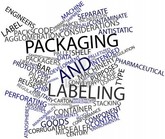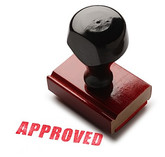Biosimilars
IAPO releases toolkit for biologicals and biosimilars
The International Alliance of Patients’ Organizations (IAPO), which comprises over 200 patient groups and represents the interests of patients worldwide, has published an Information and Advocacy Toolkit on Biological and Biosimilar Medicines for Patients’ Organizations. The Toolkit, published in November 2013, provides up-to-date, evidence-based information on the science, technology and regulatory information relevant to biologicals and biosimilars.
Call for action on labelling of biosimilars
European trade association, the European Association for Bioindustry (EuropaBio) has called on the European Medicines Agency (EMA) to define specific guidance on the labelling of biosimilars.
Amgen starts phase III trial for biosimilar rituximab
Biologicals major Amgen is carrying out a global phase III clinical trial for a biosimilar version of Roche’s blockbuster arthritis/non-Hodgkin’s lymphoma drug MabThera/Rituxan (rituximab).
Biosimilars applications under review by EMA – August 2014
The European Medicines Agency (EMA) is the body responsible for approval of biosimilars within the European Union (EU). A legal framework for approving biosimilars was established in 2003. Approval of biosimilars is based on an abbreviated registration process, which allows biosimilars manufacturers to provide a reduced package of information compared to originator drugs, provided they can prove ‘similarity’ to the originator or reference drug.
Roche updates position on biosimilars
Originator pharma company Roche has updated its position statement on biosimilars, stating that ‘biosimilars are not quite the same’.
Strategy for biosimilars in China
China is one of the largest pharmaceutical markets in the world, and has seen rapid growth in the biopharmaceuticals industry in recent years. However, it is still lacking guidance when it comes to biosimilars. Authors Li and Tuan from the Shenyang Pharmaceutical University, China, discuss how this affects biologicals companies in China [1].
Biosimilars of trastuzumab
Last update: 15 January 2021
Trastuzumab is a monoclonal antibody that binds to and inactivates the human epidermal growth factor receptor 2 (HER2)/neu receptor. In some cancers, notably certain types of breast cancers, HER2 is over-expressed, and causes cancer cells to reproduce uncontrollably. Trastuzumab is therefore used to treat HER2 positive (HER2+) breast cancers.
Pegteograstim biological approved in South Korea
South Korean biologicals company, Green Cross, announced on 18 August 2014 that it had received marketing authorization from South Korea’s Ministry of Food and Drug Safety (MFDS) for its pegteograstim biological Neurapeg.
Patient access to rituximab in emerging markets
A Pfizer-sponsored study looking at access to the oncology treatment rituximab has revealed that use of this important drug would increase across all therapy types and markets if a biosimilar was available. A rituximab biosimilar would have the greatest impact in Brazil, Mexico and Russia.
Regulating the safety of biosimilars
Clinical safety is critically important during the development of a biosimilar. An overview of the main aspects of safety assessment of biosimilars has been prepared to assist all those interested in this area of growing importance [1].












